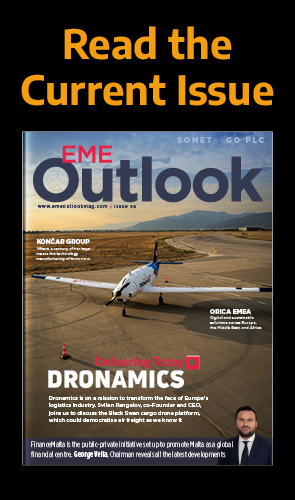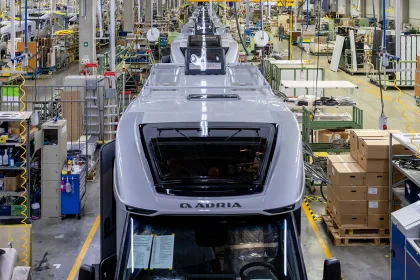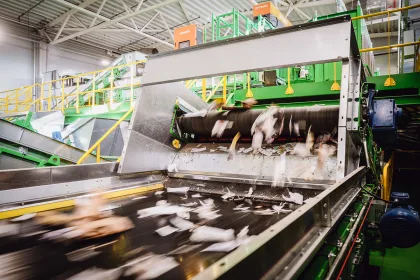From January 2024, many organisations will be subject to new environmental and social reporting requirements. Olga Rivas, Sustainability Specialist at LRQA, outlines how businesses can prepare ahead of EU Corporate Sustainability Reporting Directive implementation.
THE FUTURE OF EVIDENCE-BASED CLAIMS
Consumer trust drives business success. After all, no customers mean no business. Building brand reputation is therefore at the core of any successful business and this extends to the ever-intensifying spotlight on sustainability claims. There now exists a ‘prove it’ culture, cultivated by global media which exposes those brands that slip up. Consequently, organisations face renewed impetus to back up their green commitments, particularly as current approaches could lead to further scrutiny from investors.
As demand for substantiated commitments increases, seeking independent third-party verification can help drive credibility and confidence from both customers and stakeholders. While organisations are showing awareness of the need to measure and manage their pledges, many are relying on self-verification, which is difficult to monitor and report accurately.
An international survey of more than 1,100 sustainability professionals across 11 countries and 13 industries, found that only 46 percent are having their data and information independently verified. Any sign of a lack of transparency could have significant consequences, such as a downturn in investor confidence and customer trust.
THIRD PARTY FOCUS
Independent verification is increasingly being regarded as an essential tool for global organisations to show themselves as following best practice in pursuing transparency, trust and supply chain visibility. In fact, global organisations which, although not government or industry, are credible, well-renowned and thus very powerful, are becoming a voice of endorsement for such verification. In some cases, organisations are often named and shamed for not having their data and information independently substantiated.
This notion is mirrored in government policy and regulation on a global scale. Businesses under the Non-Financial Reporting Directive (NFRD) must disclose non-financial information to provide greater business transparency and increase accountability on social and environmental issues.
Over the last few years, the environmental, social, and corporate governance (ESG) elements of the NFRD have evolved. However, the European Commission (EC) stance is that these changes do not go far enough. This dual approach from industry and government means evidence-based claims are the future.
The EC argues that current regulations do not provide a standardised approach to the collation of data. This inconsistency means the users of the data and information – whether it be investors or other stakeholders – can’t compare. Therefore, the incoming proposal for the Corporate Sustainability Reporting Directive (CSRD) is about aligning this process and the way data is reported.
STAGED IMPLEMENTATION
The changes will immediately impact those companies currently covered by the NFRD. They will need to report on 2024 data with a view to submit data in 2025. At present, the NFRD only covers about 12,000 large organisations across Europe. However, while the NFRD primarily impacts larger organisations, the draft CSRD will not be restricted to just financial auditors and could cover around 50,000 companies of varying sizes.
To make up this figure, medium sized companies will be working to a deadline of 2026; the final stage of implementation is for non-EU companies, who must submit data by 2027. Any companies registered on the European market, or those non-European companies with a European branch that is of significant size, will also be required to comply.
DATA COLLECTION
With the first cohort of organisations due to start gathering data from 1st January 2024, businesses need to act now to implement suitable systems and processes. Worryingly, almost all (93 percent) of the sustainability leaders surveyed in the report – Climate Focus – identified at least one internal barrier to achieving their environmental sustainability targets. A lack of knowledge, resourcing, complexity and cost were all cited as problematic. This is where it’s valuable to review existing processes.
Prior to verification, undertaking a GAP analysis is a valuable exercise for understanding where the existing management system sits in terms of compliance. In doing so, organisations can identify what remedial action – if any – needs to be taken. Businesses should ask themselves if they are prepared for the new directive. If any major deficiencies are highlighted in the management system, a period of consolidation and maturity is vital.
FRESH PERSPECTIVE
From a wider point of view, companies will need to shift their thinking and focus. All team members must be engaged to enable successful collection, reporting and verification of data. It will require collaboration from the entire workforce. With this in mind, organisations must consider what this looks like from an organisational planning perspective. More specifically, is there anything that needs to change about current data collection methodologies?
With 1st January 2024 marking the start line for data collection, it’s crucial that organisations understand how the CSRD will affect them. Overall, those who start reviewing their existing strategies, methodologies, and processes will give themselves a head start in the race for third party verification.
To find out more about how businesses can prepare, please visit: www.lrqa.com/en-gb/climate-change-sustainability/
ABOUT THE EXPERT
Olga has 22 years’ experience advising and auditing businesses on environmental issues, energy safety and health risks, as well as driving management systems and cultural change. This includes extensive senior level engagement with large companies on climate change, energy, sustainability verification and certification.
Editor’s note: Many of the business leaders featured by EME Outlook continue sharing their insights on LinkedIn. For CEO’s across EME seeking to strengthen their online presence, visit LinkedIn for CEO’s.

































